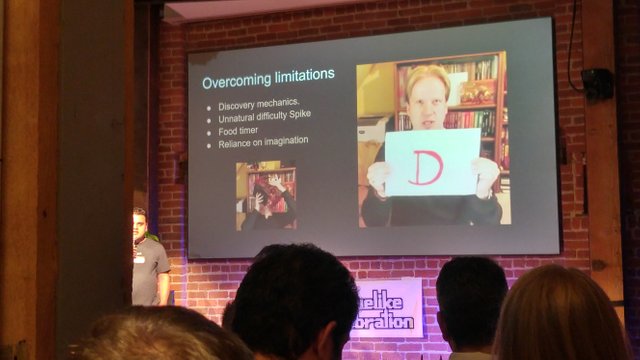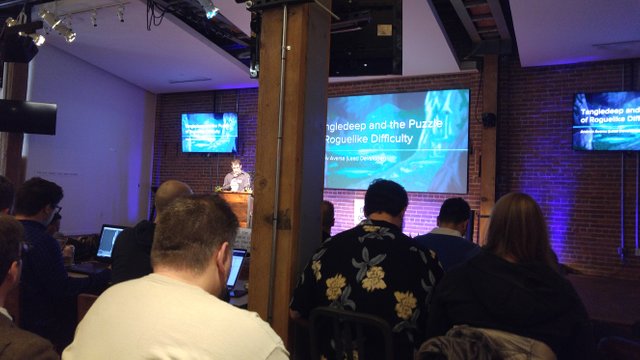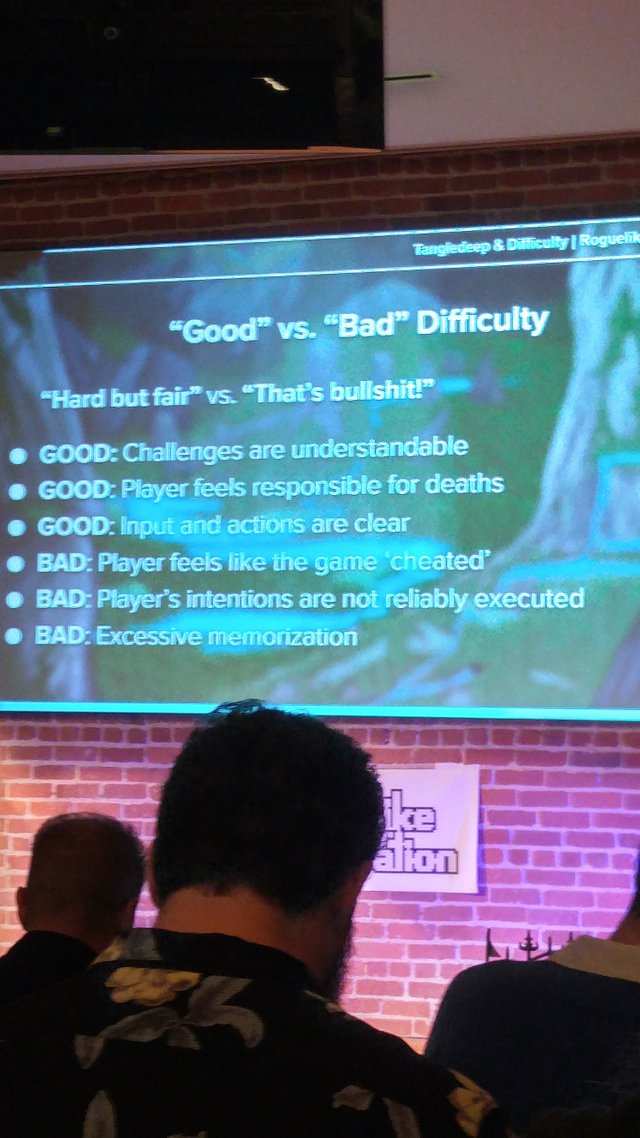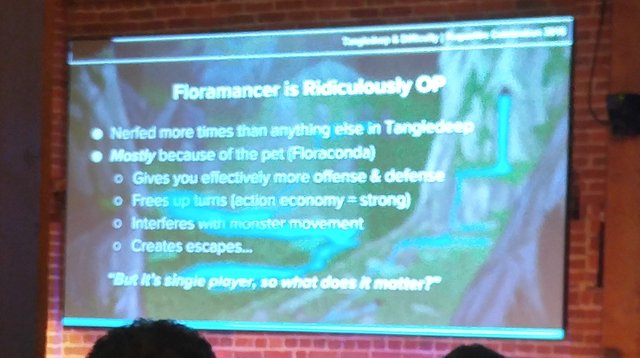Nearly-liveblogging Roguelike Celebration: Santiago Zapata and Andrew Averson
Santiago Zapata on Roguelike history
Santiago's talk on influences and development of roguelikes was interesting; I always like the histoical approach he takes.
Dungeons and Dragons is obviously a huge influence: as soon as it came out, people tried making computer versions of it:

D&D features showing up in roguelikes:
- permanent consequences
- character-centric
- turn-based
- procedurally-generated content (sort of; even earliest DM guides included random tables)
Rogue spawned a lot of imitators in part because somebody would see it at a different university, and then go back home and try to reproduce it on their own, without access to source code or even the chance to play it deeply.
Rogue's features that had an influence on later games often derived from the limitations of random generation: how do the game developers give more depth to a fundamentally simple dungeon generator?
- discovery mechanism (unknown scrolls/potions)
- unnatural difficulty spike (hard to beat)
- food timer forcing exploration
- reliance upon imagination

Rogue imitators expanded along different identifiable axes:
- greater world interaction: Hack, Nethack
- content/theme: Moria, Angband
- location + world: Larn
These led to the sprawling, complex "genroguelikes" of the 1990's. In the 2000s we saw a retreat toward focus on gameplay, and cross-polliation with other genres via exposure. He says 7DRL helped a lot with this, by injecting a lot of roguelikes into the conversation.
Andrew Averson on game difficulty (Tangledeep)

An information-dense talk on the decisions he made to try to provide "good" difficulty instead of "bad" difficulty.

A few interesting points:
Give players feature flags for your game, so they can adjust the level of difficulty themselves! Not everybody wants permadeath; some players wanted to rest to recover. Let them!
In turn-based tile games, "pets" or other followers can be overpowered because they server multiple roles. They get an extra turn. They absorb opponent turns when they attack the pet. They block tiles that opponents would need to get to you.

Combated "completionists" who acquired all skills, by restricting skill usage to only the ones loaded into the hotbar (and unloading them would get rid of a summon/buff.) These power players had been asking for more hotbar slots pre-change so they could use all the abilities they accumulated. But they didn't complain when the restriction was added; he used this as an example of "listen to your users, but don't necessarily to what they ask."
Balance matters even in single-player games because player experience with their first choice could ruin their experience. Easy/hard classes should at least be explicitly marked as such.
Event calendar: https://roguelike.club/event2018.html
Livestream:
Hello @markgritter, thank you for sharing this creative work! We just stopped by to say that you've been upvoted by the @creativecrypto magazine. The Creative Crypto is all about art on the blockchain and learning from creatives like you. Looking forward to crossing paths again soon. Steem on!